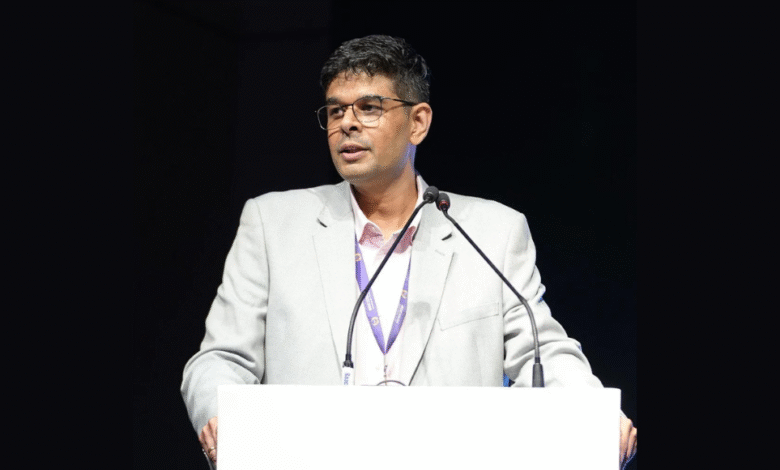
In the wake of rapidly evolving workplace dynamics and rising expectations around employee experience, culture, and purpose, the Global Capability Center (GCC) ecosystem in India is undergoing a quiet revolution. At the forefront of this transformation are leaders who are not only building global value from India but also reshaping what the modern workplace should look and feel like.
To unpack these shifts, we spoke with Anuj Agrawal, a distinguished business leader and the Founder & CEO of Zyoin Group, one of India’s leading recruitment solutions providers. With over two decades of experience and partnerships with more than 1,000 companies, Anuj has his finger firmly on the pulse of workforce trends. He also leads the Workplace Awards, a flagship initiative that celebrates organisations building exemplary workplace cultures—many of them fast-growing GCCs.
Q: What workplace innovations are you seeing emerge across the GCC ecosystem, especially in areas like hybrid work, wellness, DEI, or upskilling?
Anuj: What we’re seeing across the GCC ecosystem today is the creation of a new benchmark for what workplaces in India can and should look like. These are not just companies setting up operations—they’re mature global organizations bringing international standards with them. And when they came to India, they didn’t compromise on that standard.
Innovation is happening on multiple fronts—hybrid work, wellness, DEI (diversity, equity, and inclusion), and upskilling. These aren’t just HR policies; they are embedded in the operating culture, rooted in the global DNA of these organizations. Whether it’s wellness programs, hybrid work norms, or structured learning pathways, these initiatives are built into the way these companies function.
There’s a strong focus on employee wellbeing, continuous feedback systems, inclusive hiring, and learning journeys. These elements aren’t afterthoughts—they’re central to the Employee Experience (EX).
Our research at Zyoin and insights from the Workplace Awards platform show that many GCCs today offer compensation and benefits that outperform even established startups or traditional IT services firms. This includes enhanced health coverage, mental wellness support, flexible working, and a stronger people-first orientation. These factors are helping GCCs attract and retain top-tier talent and shaping the future of work in India
Q. How should someone with 5–10 years of experience look at building a career in GCCs?
Anuj: For someone with 5 to 10 years of experience, GCCs offer one of the most exciting and strategic career paths today. The key to understand is that while a GCC may seem like a new name in India, they are often global, listed companies with mature operations elsewhere in the world. Their brand visibility in India may be low because they don’t serve Indian customers—but their impact and scale are significant.
Many are building their India operations from the ground up. That creates a rare opportunity. You’re not joining a backend delivery setup; you’re stepping into a global innovation engine. And in many cases, you’re joining during its formative years in India. That means a chance to build, shape, and grow—not just execute.
It also means access to mature global frameworks while contributing to something entrepreneurial. For professionals in the 5–10 year range, this opens up leadership paths, gives room to influence culture, and offers direct exposure to global mandates. More India-based leaders are now heading global business lines, innovation labs, and transformation units.
So, for mid-career professionals, GCCs represent a platform to create global value from India.
Q. As GCCs move to smaller cities, beyond the metros, how could the organisational culture be impacted?
Anuj: When GCCs expand into Tier 2 cities, it doesn’t dilute innovation—it deepens it. And that’s because of proximity to real-world contexts. Let’s say a global retail brand wants to innovate for customers across multiple markets. If the team building those solutions is far removed from the ground realities of those consumers, they’re likely designing from a brief. But a team that is closer to relevant social or market conditions brings more empathy and insight into the innovation process.
This expansion also presents an opportunity to shape culture consciously, instead of simply replicating headquarters norms. Local talent brings fresh perspectives, different lived experiences, and often a hunger to build and prove themselves. All of this enriches the culture—not weakens it. In many ways, moving beyond metros will be a catalyst for more agile, inclusive, and grounded workplace cultures.
Q. In what ways are India’s GCCs evolving beyond operational excellence to become culture-forward innovation engines?
Anuj: There’s a clear shift underway. GCCs have moved beyond their earlier positioning as cost-effective delivery centres. Today, they are drivers of innovation, culture, and leadership. These companies already operate with global mandates, strong governance, and mature systems. But in India, they’re not just replicating what they’ve done elsewhere. They’re building new teams, new structures, and new ways of thinking. And that gives them the chance to shape culture intentionally from the ground up.
Many are investing in leadership development, DEI councils, innovation forums, and communities of practice. There’s a growing culture of knowledge-sharing across old and new GCCs, and a deliberate effort to build environments that are not only high-performing but also deeply human.
As some of them start engaging with Indian customers and collaborating with other GCCs, their business models are evolving too. So this transformation is not just cultural—it’s strategic and structural, turning GCCs into engines of global value from India.
Q. GCCs in India have traditionally not been vocal about workplace culture. Are you seeing a shift in how they tell their story and own it?
Anuj: Absolutely. One of the biggest shifts in the GCC ecosystem today is in how they’re telling their stories. For a long time, GCCs stayed under the radar. Their global parent brands were well-known, but in India, they lacked visibility—mainly because they weren’t serving Indian consumers directly.
Now, that’s changing. GCCs are stepping into the spotlight and owning their narratives. Much of this momentum is thanks to vibrant forums and platforms available today, which serve as powerful stages for them to showcase innovation and workplace culture. These platforms bring together stakeholders across talent, policy, compliance, real estate, and leadership—and enable storytelling, visibility, and recognition at scale.
GCCs are no longer silent contributors. They are vocal, intentional, and shaping how global enterprises are built from India—not just functionally, but culturally as well.




